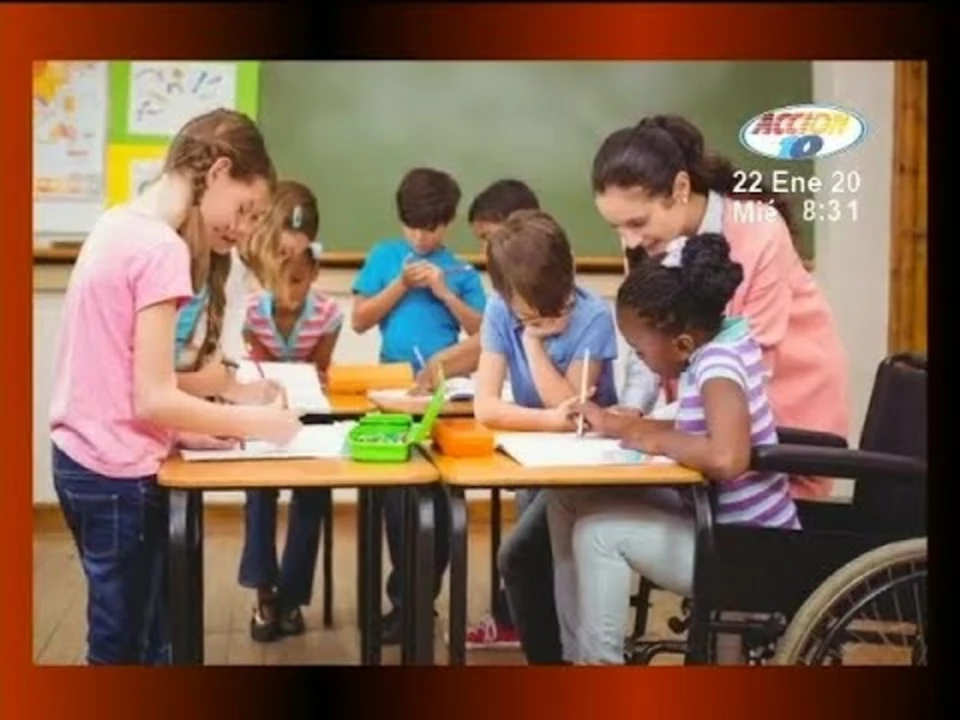Introduction: The Importance of Special Education in Teacher Training
As a future educator, I believe that understanding and being prepared for special education is a crucial aspect of teacher training. In today's diverse classrooms, it is essential to be equipped with the necessary skills and knowledge to effectively teach students with varying needs. In this article, I will discuss the importance of special education in teacher training, and how it can make a significant difference in the lives of both teachers and students.
Understanding Different Learning Needs
One of the primary reasons why special education is essential for a teacher in training is the need to understand different learning needs. Students with disabilities may require different approaches and instructional methods, and it is crucial for a teacher to be able to adapt their teaching style accordingly. This can help create an inclusive learning environment that benefits all students, and ensures that no one is left behind. By becoming familiar with different learning needs, teachers can develop strategies to effectively address the unique challenges that students with disabilities may face in the classroom.
Creating an Inclusive Classroom Environment
Another important aspect of special education in teacher training is the ability to create an inclusive classroom environment. This means ensuring that all students feel valued, respected, and included, regardless of their abilities or disabilities. In an inclusive classroom, teachers must be prepared to adapt their teaching methods and materials to accommodate the diverse needs of their students. This can involve modifying lesson plans, using alternative assessments, and providing additional support to students who need it. By creating an inclusive classroom environment, teachers can help promote a sense of belonging and foster positive relationships among all students.
Developing Effective Instructional Strategies
Special education in teacher training also involves developing effective instructional strategies that can be used to support students with disabilities. These strategies may include the use of assistive technology, differentiated instruction, and multisensory teaching methods. Additionally, teachers must be prepared to collaborate with other professionals, such as special education teachers and therapists, to develop and implement individualized education plans (IEPs) for students with disabilities. By mastering these instructional strategies, teachers can ensure that their students with special needs have the support they need to succeed in the classroom.
Understanding Legal Requirements and Responsibilities
As a teacher, it is important to be knowledgeable about the legal requirements and responsibilities related to special education. This includes understanding the Individuals with Disabilities Education Act (IDEA), Section 504 of the Rehabilitation Act, and the Americans with Disabilities Act (ADA). These laws protect the rights of students with disabilities and ensure that they receive the appropriate accommodations and services needed to succeed in school. By being well-versed in these legal requirements, teachers can advocate for their students and ensure that their needs are met in accordance with the law.
Enhancing Collaboration and Communication Skills
Effective collaboration and communication skills are essential for any teacher, but they are especially important when working with students with disabilities. Special education in teacher training helps educators develop the ability to work closely with other professionals, such as special education teachers, therapists, and school psychologists, to create and implement effective IEPs. Additionally, strong communication skills are necessary to effectively convey information to parents, colleagues, and other stakeholders. By developing these skills, teachers can better support their students with disabilities and ensure that they receive the appropriate services and accommodations needed to succeed in school.
Building Empathy and Understanding
Lastly, special education in teacher training helps to build empathy and understanding for students with disabilities. As teachers become more familiar with the challenges that these students face, they can develop a greater appreciation for their strengths and abilities. This empathy can lead to more compassionate and supportive teaching practices, which can help students with disabilities thrive in the classroom. By fostering a deeper understanding of the unique needs of students with disabilities, teachers can create a more inclusive and supportive learning environment for all students.
Conclusion: The Essential Role of Special Education in Teacher Training
In conclusion, special education is an essential aspect of teacher training that cannot be overlooked. By understanding different learning needs, creating an inclusive classroom environment, developing effective instructional strategies, being knowledgeable about legal requirements, enhancing collaboration and communication skills, and building empathy and understanding, teachers can be better prepared to support their students with disabilities. Ultimately, this will lead to a more inclusive and effective educational experience for all students, regardless of their abilities or disabilities.






